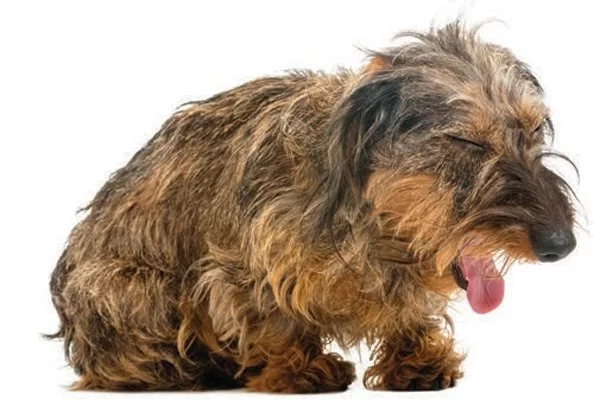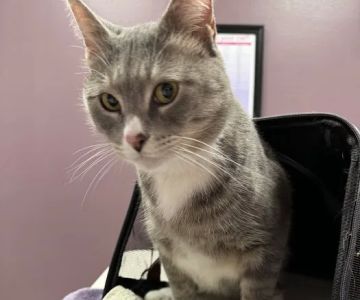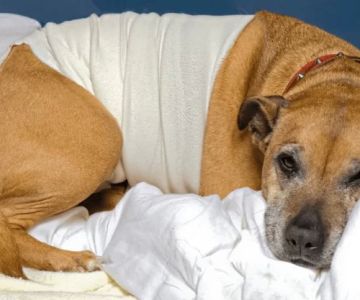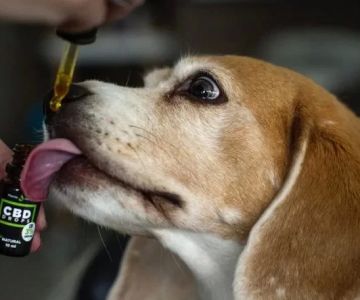Why Is My Dog Coughing After Eating or Drinking? Causes and Care Tips
- understanding-dog-coughing-after-meals
- common-medical-reasons-for-coughing
- choking-vs-coughing-how-to-spot-the-difference
- real-cases-when-coughing-signaled-something-more
- how-to-respond-if-your-dog-coughs-after-eating
- when-to-seek-professional-vet-help
1. Understanding Dog Coughing After Meals
If you’ve ever asked yourself, “Why is my dog coughing after eating or drinking?”—you’re not alone. This behavior can catch pet parents off guard, especially if it starts suddenly. Mild coughing might happen occasionally, but persistent or harsh coughing can be a warning sign that something isn’t quite right in your dog’s health.
While some coughing is harmless—just your dog trying to clear its throat—it could also signal respiratory irritation, digestive issues, or even structural abnormalities in the airway or esophagus.
2. Common Medical Reasons for Coughing
2.1 Tracheal Collapse
Especially common in small breeds like Yorkies or Pomeranians, tracheal collapse causes the windpipe to weaken. After eating or drinking, increased airway activity may trigger the classic honking cough associated with this condition.
2.2 Laryngeal Paralysis
This condition affects older dogs, especially larger breeds. The larynx (voice box) doesn’t open properly during swallowing, leading to food or liquid getting close to the airway—resulting in a wet, gaggy cough.
2.3 Esophageal Disorders
Megaesophagus—a condition where the esophagus becomes enlarged—can cause food or water to sit in the throat longer than it should. This increases the risk of aspiration (inhaling food or water), which can result in coughing episodes after meals.
3. Choking vs. Coughing: How to Spot the Difference
It's important to know whether your dog is coughing after eating or drinking or actually choking. A cough is a reflex to clear the throat and often sounds like a "huff" or "hack." Choking, however, involves signs of distress—open mouth breathing, pawing at the mouth, or sudden collapse.
If you’re ever unsure, it’s better to act fast and contact professionals like the team at Hidden Brook Veterinary, who can help assess your dog immediately and guide emergency care.
4. Real Cases: When Coughing Signaled Something More
Sarah, a dog mom from Phoenix, noticed her golden retriever coughing every morning after breakfast. After a consultation at her local vet, he was diagnosed with early-stage laryngeal paralysis. A change in feeding routine and specialized exercises helped reduce the symptoms dramatically.
In another instance, a chihuahua named Coco had been coughing after every drink. After a detailed airway exam at Hidden Brook Veterinary, Coco was found to have a minor tracheal collapse. With proper medication and using a slow-drinking water bowl, the condition was brought under control.
5. How to Respond If Your Dog Coughs After Eating
If your dog coughs just once or twice and resumes eating happily, it’s likely nothing serious. But here are a few things you can try:
- Elevate your dog’s food bowl to reduce strain on the esophagus.
- Switch to wet or softened food for easier swallowing.
- Use a slow feeder bowl to prevent gulping.
- Provide small meals more frequently instead of one or two large meals.
Monitoring your dog’s behavior after eating is key. Is the coughing consistent? Does it happen with both food and water? Does it interfere with breathing? These clues can help your vet diagnose accurately.
6. When to Seek Professional Vet Help
If your dog is coughing after eating or drinking consistently, don’t ignore it. Chronic coughing could lead to aspiration pneumonia, discomfort, or indicate a more serious condition. You should call your vet if:
- The coughing is harsh or prolonged.
- It’s accompanied by gagging, vomiting, or loss of appetite.
- Your dog seems lethargic or breathes with difficulty.
The expert staff at Hidden Brook Veterinary specialize in evaluating respiratory and gastrointestinal issues in dogs. They can offer advanced diagnostics like X-rays, endoscopy, or swallow studies to pinpoint the cause quickly and accurately.
Taking action early ensures your pet stays comfortable, safe, and healthy. If you've noticed this issue more than once, it’s time to schedule that check-up and find peace of mind.












